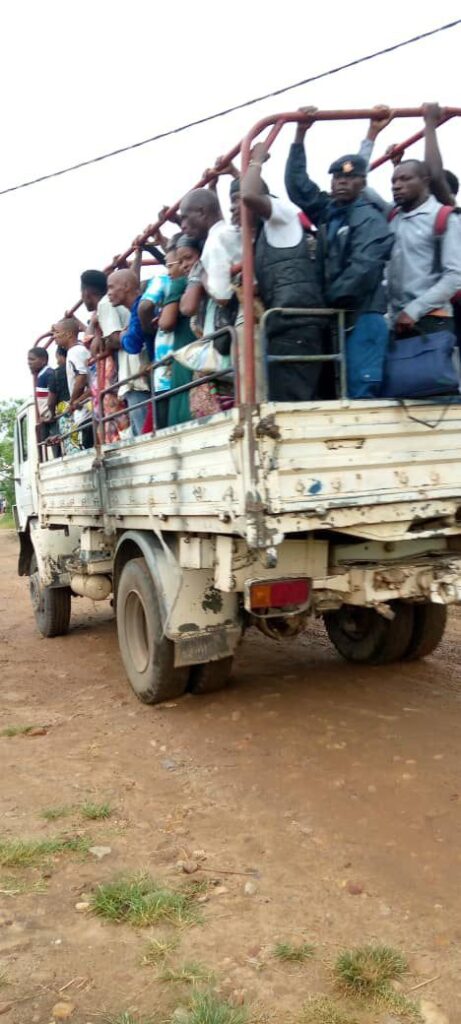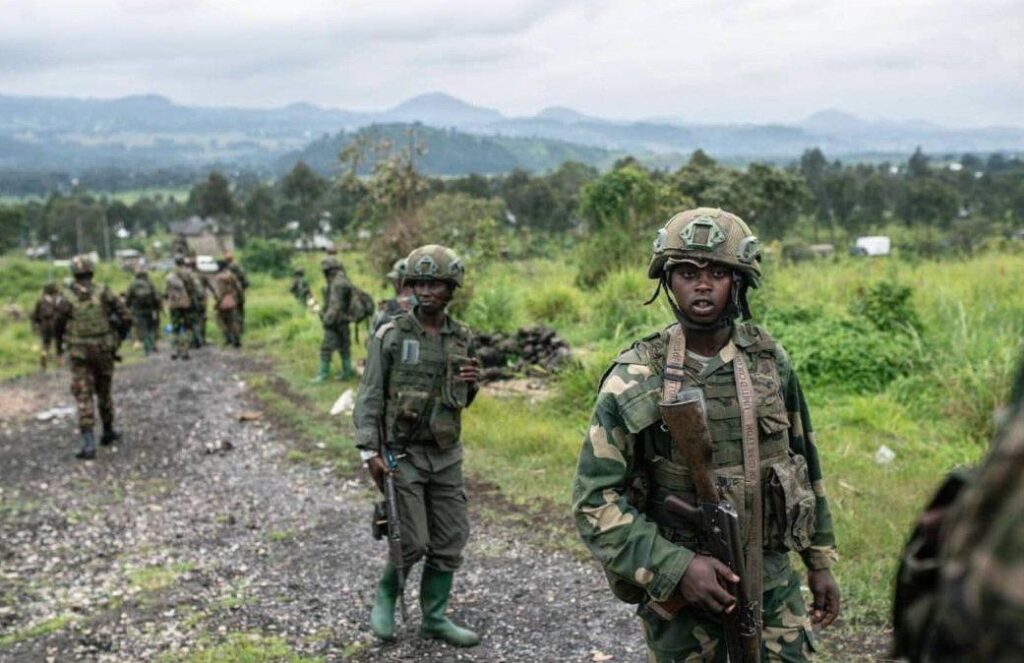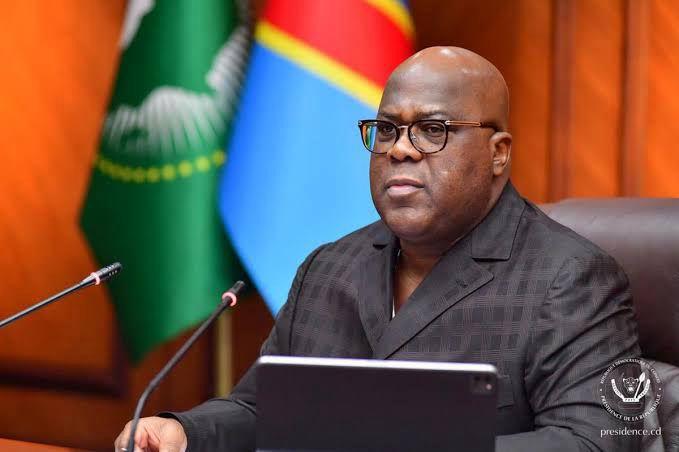“Following the discussions I had with Rwanda’s allies, those expecting an attack from Rwanda against Burundi would do better to put their heads back in their bags. But good-hearted Burundians, remain vigilant, for no one knows the day a thief will strike.”.
These were the words of Burundian President Évariste Ndayishimiye, posted in kirundi language on his X account in the wake of Bukavu’s dramatic fall to the AFC/M23 rebel coalition. Yet, behind this declaration of defiance lies a growing fear in Bujumbura. The fall of Bukavu, the capital city of South Kivu in eastern DRC, has not only reshaped the conflict but also placed Burundi in an increasingly vulnerable position.
The Fall of Bukavu: A Turning Point in the Regional Conflict
Bukavu’s capture by AFC/M23 has sent shockwaves across the Great Lakes region. This rebel coalition, long accused of receiving support from Rwanda(United Nations security Council,2024), has showcased its military strength, forcing Congolese forces (FARDC), and their allies ; the wazalendo militia and Burundian troops, into a disorganized retreat. The collapse of government control over Bukavu has triggered a severe humanitarian and security crisis. From midday on February 14th to the early morning of Sunday, February 16th, 2025, the city plunged into anarchy as residents were left wondering who was truly in control. With the FARDC having already withdrawn and AFC/M23 forces not yet visibly present, chaos and vandalism erupted across Bukavu.
Uvira, a key border town between DRC and Burundi, is in turmoil. As FARDC troops, Wazalendos Mai-Mai militias, and fleeing civilians converge in the area, chaos reigns. Sporadic clashes between Mai-Mai fighters, Wazalendos and retreating FARDC forces have only worsened the already dire situation. Thousands of civilians, along with DRC officials, FARDC forces, and Wazalendo fighters, are fleeing in various directions. Some are taking boats along the Uvira-Kalemie-Moba route, as shown in the video below, while others are heading from Uvira to Kigoma in neighboring Tanzania. Meanwhile, many are attempting the perilous journey toward Fizi, Baraka, and Kindu. The suffering of the local population is unthinkable, as insecurity, food shortages, and displacement intensify.
Burundi’s Calculated Withdrawal and Fear of Retaliation
Burundi had initially sent its troops to help the FARDC against AFC/M23, strengthening Kinshasa’s position in the conflict. However, with Bukavu lost and the rebels consolidating their control, Bujumbura has made a calculated retreat. Burundian forces, once actively engaged in eastern Congo, have now been recalled to Bujumbura, signaling a shift in strategy; one that appears to be focused on self-preservation rather than continued involvement in the conflict.
One of the key reasons behind this withdrawal is fear of direct retaliation from the rebels or their alleged backers. Burundi’s military support for FARDC had placed it on the frontline of regional hostilities, and there are concerns that AFC/M23 or even Rwanda could extend the battlefield into Burundian territory. According to intelligence sources, President Ndayishimiye has reportedly sought a truce with Kigali, aiming to prevent further escalation and ensure that Burundi does not become the next target of the ongoing war.
The Exodus from Bukavu: A Governor’s Alleged Escape to Bujumbura
As Bukavu fell, reports surfaced about the whereabouts of the city’s governor, Mr. JEAN JACQUES PURUSI. Allegations suggest that he has relocated to Bujumbura, where he reportedly owns a luxurious mansion. If true, this would raise serious questions about the extent of political entanglements between certain Congolese officials and their Burundian counterparts. While thousands of ordinary Congolese flee for their lives, it appears that some high-ranking officials have found safety across the border.
Burundi’s Internal Struggles: The Expulsion of Congolese Nationals
As fears of regional retaliation grow, Burundi has also begun cracking down on Congolese refugees and migrants within its borders. Reports suggests that young Congolese men in Bujumbura are being forced to return to DRC and join the fight, as shown in the image below.

Some testimonies suggest that Burundian authorities are preventing young men from crossing into the city, only allowing women and children through, while urging male refugees to take up arms and defend their homeland.For Congolese students and workers in Burundi, the situation has become increasingly precarious. Many are in desperate need of help as they face forced repatriation or persecution. The message from Bujumbura is clear: Burundi will not provide refuge for those who can fight for their country.
A Region on the Brink: What’s Next for Burundi and the Great Lakes?
Burundi’s potential withdrawal from the conflict marks a significant turning point in regional dynamics. While President Ndayishimiye may be trying to avoid direct confrontation with AFC/M23, his actions suggest that Burundi is struggling to balance its security concerns with its previous commitments to Kinshasa. some confidential sources within the presidency of the DRC reveal that Burundi is receiving up to $5 million per month for its participation in the conflict.
The withdrawal of Burundian forces leaves FARDC further weakened, and with Uvira now destabilized, the next phase of the conflict remains uncertain.The broader question remains: will Burundi’s retreat keep it safe, or will it eventually be drawn back into the conflict? If Rwanda or AFC/M23 perceive Burundi as an active threat, Bujumbura could soon find itself facing the consequences of its earlier military interventions.
As the Great Lakes region faces growing instability, one thing is clear; Bukavu’s fall has sent shockwaves that are far from over. President Évariste Ndayishimiye now faces one of the most challenging geopolitical dilemmas of his leadership: whether to stay out of the fight and risk regional backlash or reengage at the risk of making Burundi a battleground. Whatever choice he makes, the stakes have never been higher.
References
United Nations Security Council. (2024, December 27). Security Council Resolution 2738 (2024): Letter dated 27 December 2024 from the Group of Experts on the Democratic Republic of the Congo addressed to the President of the Security Council – Mid-term report of the Group of Experts on the Democratic Republic of the Congo. United Nations.


